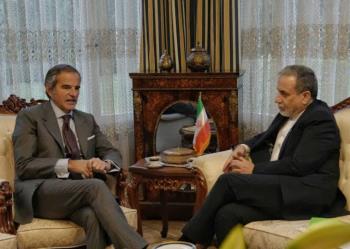Alwaght- The US military presence in Iraq is to end within a short time, just contrary to the plans of the White House officials and mainly President Donald Trump who dream of a long-term stay in the Arab country. Now, the Iraqi groups are more than ever in a consensus over the need to get the US military forces out of various parts of the country. The fact is that opposition to the US presence in Iraq dates back to the past years. But Donald Trump's recent comments that US military’s mission in Iraq is to “watch Iran” prompted an already burgeoning objection by politicians from various political tendencies to the American troops operating in the country.
Over the past two years, two major parliamentary blocs agreed to press for a bill asking Washington to remove its forces. Fatah Alliance, led by Hadi al-Amiri, and Saeroon Alliance, led by Sayyed Muqtada al-Sadr, both have a long history of opposition to the foreign forces in Iraq, at a meeting held to discuss the country’s current affairs agreed to push forward a motion in the parliament to expel foreign forces from Iraq.
The draft bill is expected to pass once it is opened for debate by the lawmakers with regard to the upper hand of the two blocs and the anti-American sentiment crawling inside other parliamentary factions. Should the Iraqi Council of Representatives approves the bill, it will record a historic moment for the Iraqis and will mean the return of the full national independence overshadowed by the American intervention and presence since 2003.
Trump’s miscalculations on Iran and using an imperative tone with Iraq
Certainly, the key factor that triggered Iraqis’ anti-American sentiments was the US rhetoric and measures. Since taking the office at the White House, Trump has complained about his country’s waste of over $7 trillion in West Asia after 2003, the year the US launched an invasion against Iraq and toppled Saddam Hussein, without any considerable result. Additionally, Trump more than once used imperative language in addressing the Iraqi leaders in an attempt to undermine the country’s political independence. His Iran-related comments on Iraq on 3 February aroused the ire of the Iraqi leaders.
Trump, with the least knowledge of the Iranian-Iraqi relations, did not hide his failure to understand that culture and identity bonds between the two neighbors are irremovable. So, announcing the American army stay on the Iraqi soil to watch Iran very likely will pave the ground for developments that will put an end to the military presence in Iraq.
The ball in Iraqi PM’s court
If the parliament approves the US exit bill, a heavy burden will be put on the Iraq Prime Minister Adel Abdul Mahdi’s shoulder. Abdul Mahdi who several times said Baghdad had no problem with “limited” US presence in his country will have to deal with a law requiring him to eject all foreign military forces, mainly the Americans, out of the country. It appears that shortly the ball will be thrown in the PM’s court and he has to implement the historical law of US forces expulsion.
What are the hardships ahead?
Although the Iraqi parliamentarians look certain about expelling the Americans out of their country, implementation of the law will be hampered by some difficulties. Currently, the US has 10 operational military bases in Iraq and plans to expand them and even build new ones. Operating Al-Nasr military base inside Baghdad International Airport, Balad just 60 kilometers north of the capital Baghdad, Al-Taghadum between Fallujah and Ramadi, Erbil in the Kurdish autonomous region, Qayyarah Airfield West in Nineveh province, and Ain al-Assad in Al-Anbar among others, the US is the foreign force with the largest military presence in Iraq.
The magnitude of the military presence and running the military bases apparently makes the US removal a tough job. It is even tougher if we know that Trump is determined to keep his forces and even boost them there. This makes their expulsion relatively problematic.
Anyway, what is obvious is that in the near future Washington will be forced to respect Iraq's national sovereignty, and leave the Muslim country sooner or later.



























